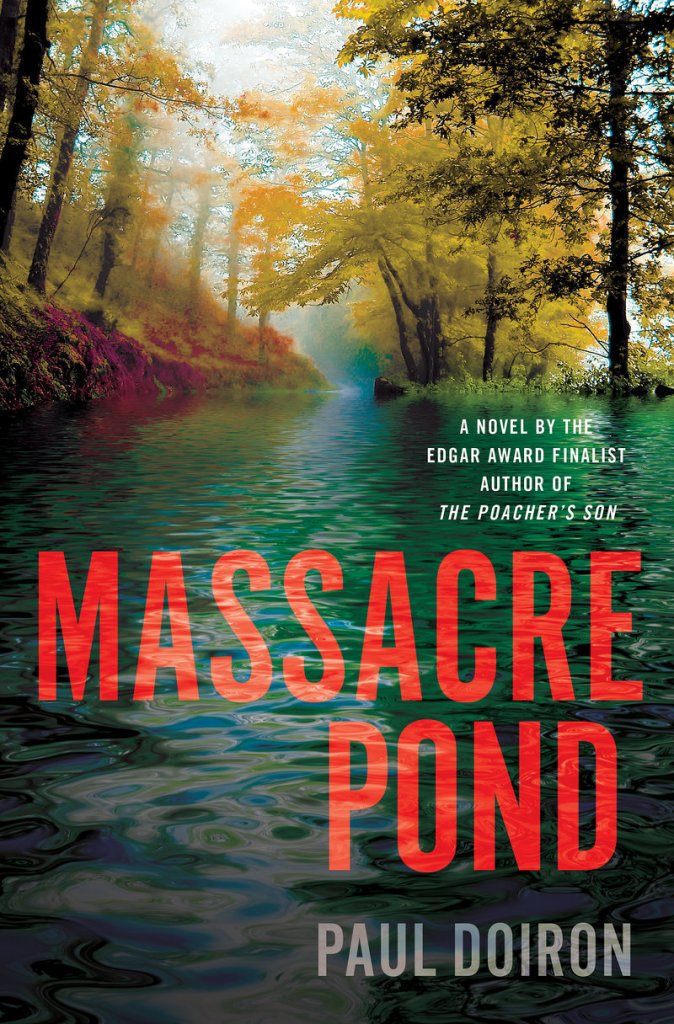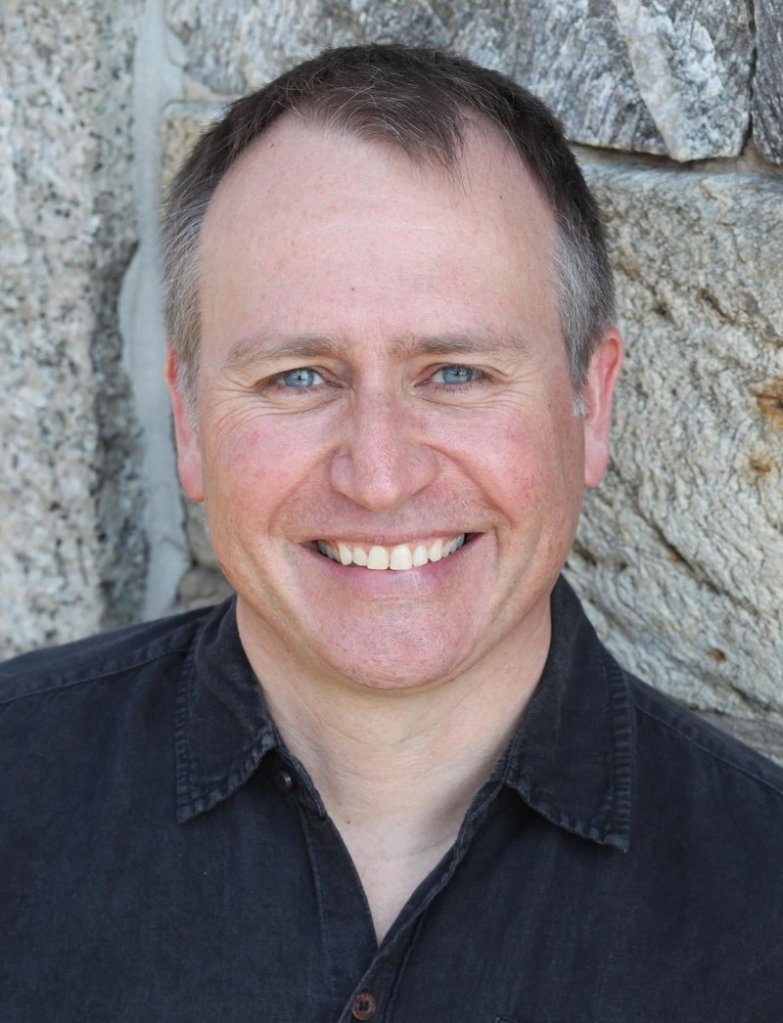Paul Doiron’s fourth mystery featuring Maine game warden Michael Bowditch includes issues that could come from recent newspapers.
In “Massacre Pond,” published by Minotaur Books, Elizabeth Morse is working to create a national park out of part of the Maine wilderness, and she is encountering a lot of opposition. Several moose are slaughtered on her property, and no one takes the meat.
Doiron takes these events and molds them to the plot of his fast-moving tale, while at the same time gets readers to think about the issues involved.
Doiron is editor-in-chief of Down East: The Magazine of Maine, so he follows Maine news, and it’s natural that some of the topics transfer to his fiction. A lot of Maine — its beauty as well as some of its problems — ends up in Doiron’s books.
In a recent telephone interview, Doiron said he’s a big fan of writer James Lee Burke, and would like to create for Maine the same kind of vision that Burke has created for Louisiana in his Dave Robicheaux novels.
Q: Your author’s note was at the end of the book, so that is when I read it. But I was thinking about Roxanne Quimby (a Maine conservationist who has proposed turning thousands of acres of her land into a national park) all of the way through. Even though you moved the park Down East instead of the North Maine Woods, you are covering the same issues, right?
A: What I wanted to do with that character and that issue was to take all of the issues around the North Woods national park, which preceded Roxanne Quimby with ReStore, discussing all of the idealism and public spiritedness of the project but also the fear and resentment, and put it all in the book. I wanted to create a novel that makes real a lot of the feelings people have about the North Woods park.
As I said in the author’s note, I do not know Roxanne Quimby, have never met her, and I don’t know anything about her family or how many children she has. My character is based on a caricature of Roxanne Quimby based on what I have read in newspapers and on environmental websites.
Q: You have different characters give cogent, reasoned arguments for and against a Maine Woods National Park. Do you have an opinion, and are you willing to share it?
A: What I had to say about the park could only be said in a novel. I am not trying to skirt the issue. I am a hunter and a fisherman, and it is important to me that the areas of the state that have traditionally been open to people like me continue to be open. But I do think some people have a fear of even conducting a viability study of the North Woods national park. They don’t even want to know if it is viable.
I think that Roxanne Quimby owns those lands and has the right to do with them what she chooses. Her property is right next to Baxter State Park, which is largely managed very well, especially compared to national parks, which have a lot more stress. Maybe a series of state parks similar to the Adirondacks would be possible. But I do think Mainers should be interested in maintaining one of the most beautiful places in the country.
Q: The other background item from Maine history/current events is the moose massacres, similar to the ones in Soldiertown. Could you discuss that a little?
A: That is an issue I have been following since it happened in 1999. Roberta Scruggs, who used to work for the Telegram and also did freelance pieces for me, did not cover the Soldiertown incident at the time, but found herself obsessed, as did a warden, Mike Favreau. She ended up writing a very long article on it, about 36,000 words.
Last year, when I was thinking about what my next book would be, I kept going back to the Soldiertown incident. I reached out to Roberta, and she gave me a 1,000-page binder of all the notes she had taken.
When I started “Massacre Pond,” I was going to keep the story close to what actually happened at Soldiertown, but when people buy a crime novel, they expect that a human being will die. So in this book, I looked at where all of this would lead if the shootings took place on the property of an environmental-rights activist.
Q: Your other books also include current outdoors issues: Canned hunts in “Bad Little Falls” and people losing camps built on leased land in “The Poacher’s Son.” Are all of your books going to have controversial outdoor issues in the background?
A: I don’t start with the issues, but part of it is that also being a journalist, I follow all the issues from the East-West highway, to building wind turbines on mountaintops or hunting homicides, since we had a rash of those a few years ago.
So the current events end up getting transferred into plots that would involve my protagonist who is a young Maine game warden.
Q: Mike Bowditch’s mother has cancer in this book. Do you have relatives with cancer, or is that just something that a lot of people have to deal with?
A: My first book, “The Poacher’s Son,” deals with his relationship with his father, and I wrote a lot about the first nine years of his life. He spent his teenage years in Scarborough, after his mother married a relatively wealthy man. What I wanted to do was explore that part of his life and the effect his mother had on him.
Q: With the success these books are having, I am assuming that as with Michael Connelly’s Harry Bosch, we’re going to have a chance to spend a lot of time with Warden Bowditch over the years.
A: I hope so. The books are selling really well.
One question people often ask is if I would want to write anything else. But I think that as long as Mike is growing and changing, and as long as he is interesting to me, I will not want to do anything else. One thing that helps is that the Maine Warden Service is involved in every type of crime that occurs in the state of Maine. We have hunting accidents, snowmobile crashes, people disappearing from the Appalachian Trail, so that will keep it interesting.
Tom Atwell is a freelance writer.
Send questions/comments to the editors.




Success. Please wait for the page to reload. If the page does not reload within 5 seconds, please refresh the page.
Enter your email and password to access comments.
Hi, to comment on stories you must . This profile is in addition to your subscription and website login.
Already have a commenting profile? .
Invalid username/password.
Please check your email to confirm and complete your registration.
Only subscribers are eligible to post comments. Please subscribe or login first for digital access. Here’s why.
Use the form below to reset your password. When you've submitted your account email, we will send an email with a reset code.